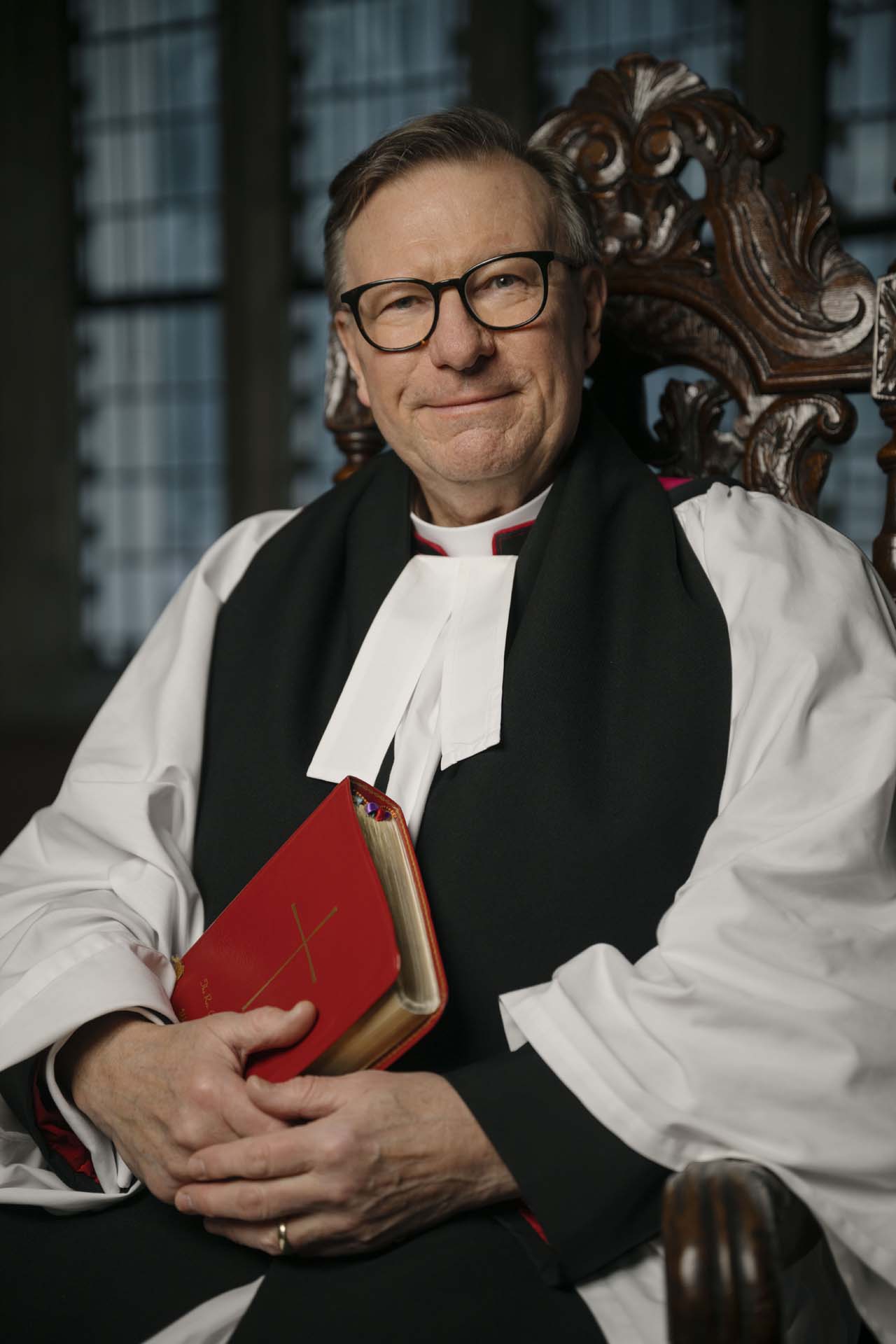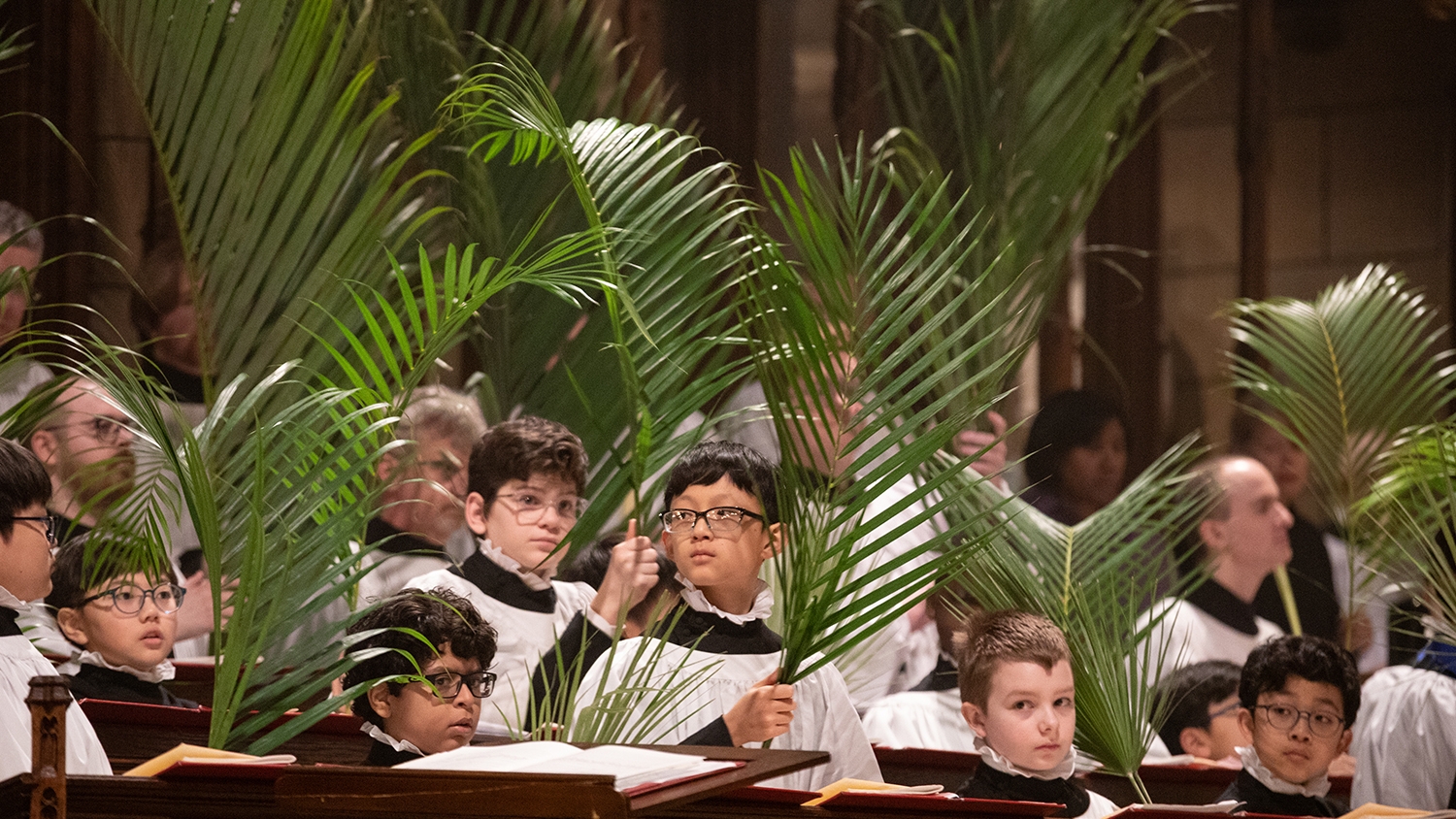
Holy Week is here! What services should I attend?
Attending a service every day in Holy Week is life-transforming! However, not all of us are able to do that every year. The Solemn Liturgies with the choir are all at 5:30pm from Monday until Saturday so it is easy to remember. So what should I do my best to attend?
In addition to Palm Sunday and an Easter Service (Saturday at 5:30pm or 8, 11, or 4pm on Easter Day) you should try to attend the 5:30pm service on Maundy Thursday and Good Friday.
This will help you hear and celebrate the full story of Holy Week – the most important week for Christians in the whole year.
For as often as you eat this bread and drink the cup, you proclaim the Lord’s death until he comes.
1 Corinthians 11:26

Dear Friends,
We are truly blessed to have Dean Andrew McGowan preaching Holy Week for us this year. His first sermon will be on Palm Sunday at 4pm, and then he will preach on Monday, Tuesday, Maundy Thursday, Good Friday at 5:30pm, and Easter Day at 11am.
On Good Friday, we are blessed to have Professor Willie Jennings with us for the venerable devotion of the Seven Last Words from the Cross from 12pm to 3pm.
Click on the image above to find our full Holy Week Schedule.
Confession Times on Good Friday
10:30am – 11:30am Mo. Lee-Pae (Lady Chapel)
10:30am – 11:30am Fr. Schultz (Resurrection Chapel)
3:30pm – 4:15pm Mo. Turner (Lady Chapel)
3:30pm – 4:00pm Fr. Moretz (Resurrection Chapel)
4:00pm – 5:00pm The Rector (Resurrection Chapel)
4:15pm – 5:00pm Fr. Gioia (Lady Chapel)

If you were in the packed church on Thursday, you would have heard an incredible performance of the Bach B Minor Mass. The singing was elegant and our soloists sang impeccably. It was a real joy to see two of our choristers singing alongside professional adults but I will never forget one of our choristers singing with Dr. Filsell! New York Baroque Incorporated supported the singing flawlessly and the many solo instrumentalists were masterful. It was truly a memorable performance that earned its standing ovation and many, many cheers. You can still listen to the concert on-demand.
I was reflecting on the way that Bach ends the B Minor Mass which, as many of you will know, is often seen as his masterpiece, written the year before his death in Leipzig in 1750. The final movement is, of course, the last lines of the Agnus Dei – dona nobis pacem – grant us peace. If you have never heard this before, you may be surprised at the use of the trumpets and tympani which gives it an exhilarating feel. It does seem counter-intuitive to set the music for the words ‘grant us peace’ so stridently, but we will hear the same treatment of those words on Palm Sunday, when the Choir of Men and Boys will sing with the Vasari singers again.

One of my favorite mass setting is the Messe Solenelle by Jean Langlais which will be sung on Palm Sunday. I first heard it when I was just 13 years old and it was one of those life-changing moments (along with singing a motet of John Sheppard when I was a student at Durham in 1978 that had been discovered by John Elliot Gardener and transcribed by him onto large BBC manuscript paper for us to sing, probably for the first time since the reformation!). Anyway, I digress! (Music is truly transformative). Langlais also startles his hearers by allowing the choir and organ to build throughout the Agnus Dei, so the dona nobis pacem is extraordinary, confident, and unlike any other. I had often wondered about why he did this when so many other composers ended the mass quietly, until someone reminded me that Langlais had completed the mass in 1951, shortly after the end of the Second World War and surrounded by the devastation in Paris and the rest of France caused by Hitler; ‘It’s like he is screaming “let us have peace,”’ said my friend and, for the first time, it suddenly made so much sense.
Perhaps Bach, too, understood that true peace needs to be proclaimed rather than whispered, and that the search for peace in a fragmented and divided world needs to be heard more than the loud and discordant voices of those who prefer division and hate.
Let us enter into the mystery of the cross so that we can truly celebrate the Resurrection on Easter Day!
Affectionately,
Your Priest and Pastor,
Carl

Mark Strand – from ‘The Seven Last Words’
1.
The story of the end, of the last word
of the end, when told, is a story that never ends.
We tell it and retell it — one word, then another
until it seems that no last word is possible,
that none would be bearable. Thus, when the hero
of the story says to himself, as to someone far away,
‘Forgive them, for they know not what they do,’
we may feel that he is pleading for us, that we are
the secret life of the story and, as long as his plea
is not answered, we shall be spared. So the story
continues. So we continue. And the end, once more,
becomes the next, and the next after that.

